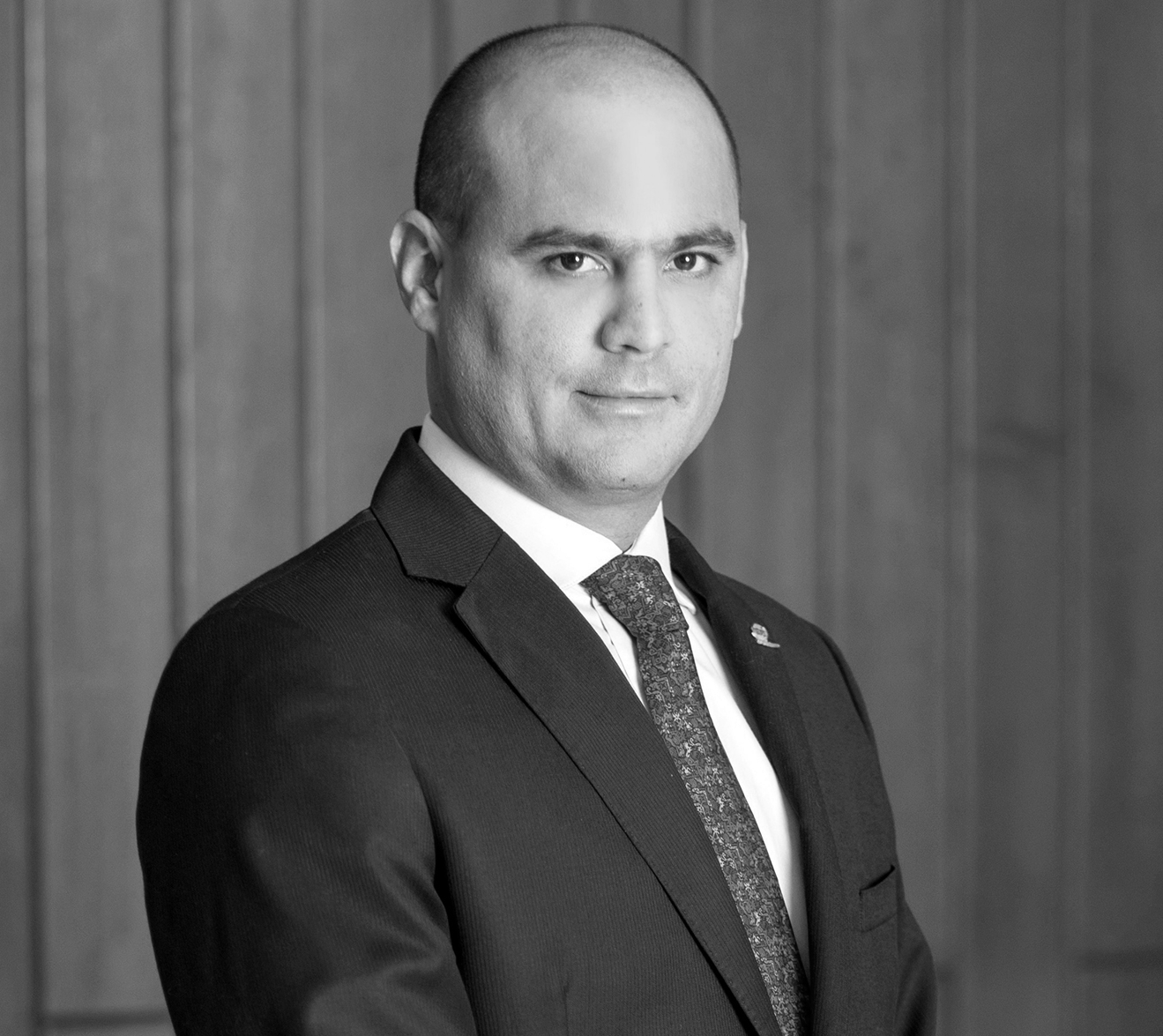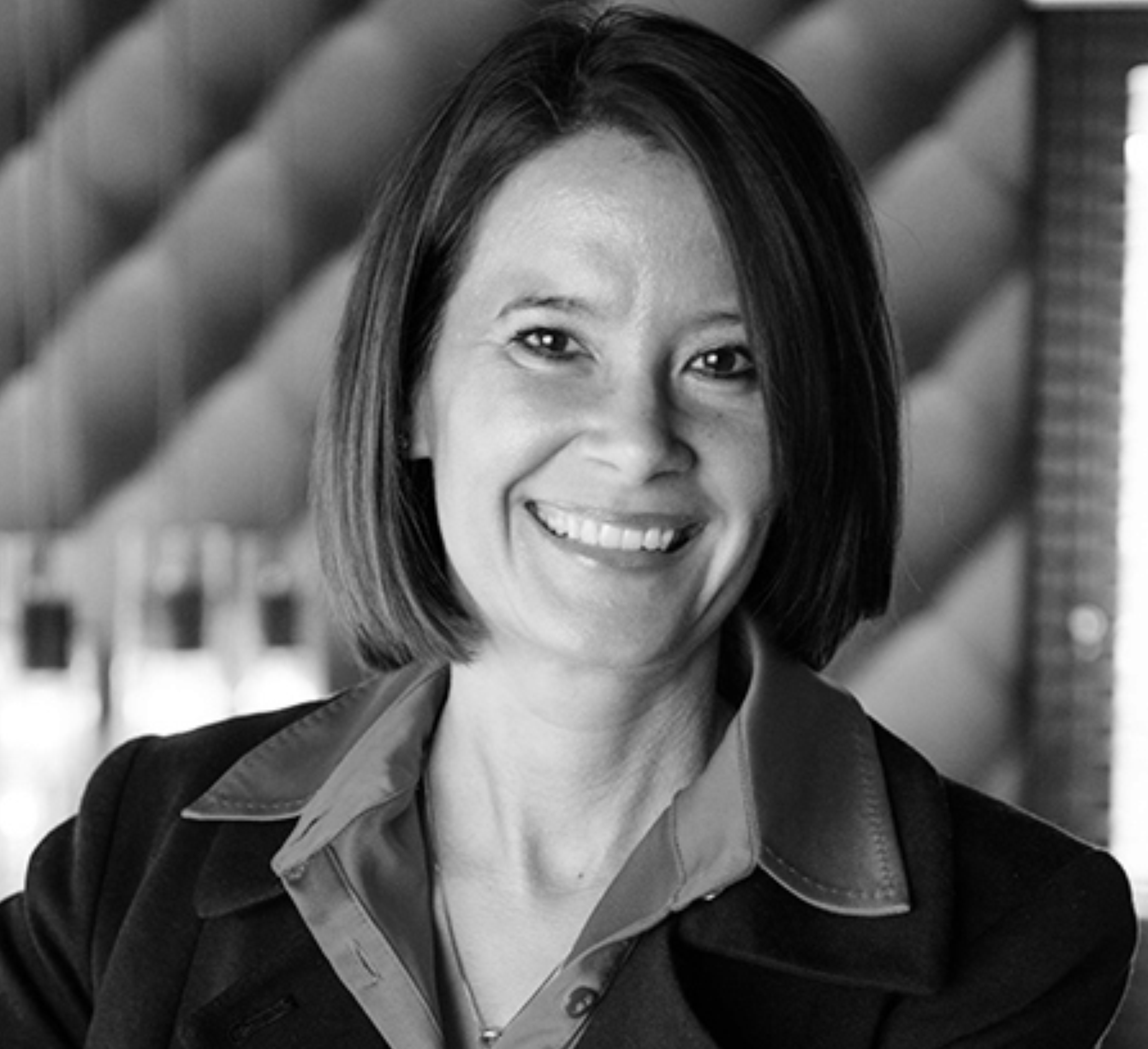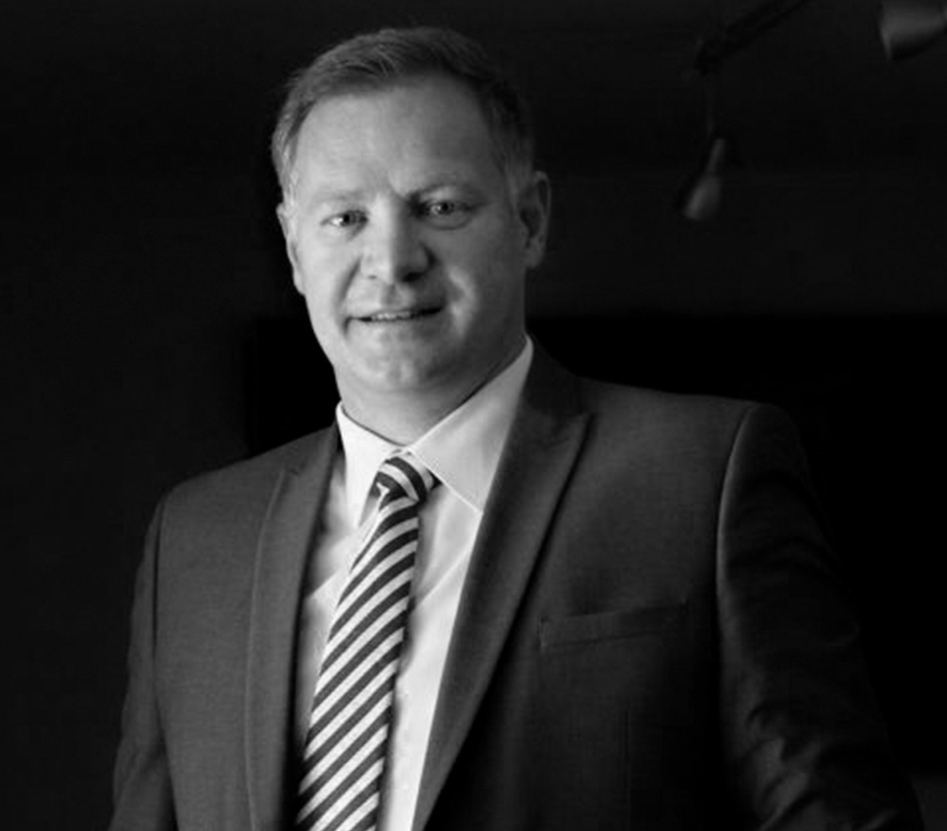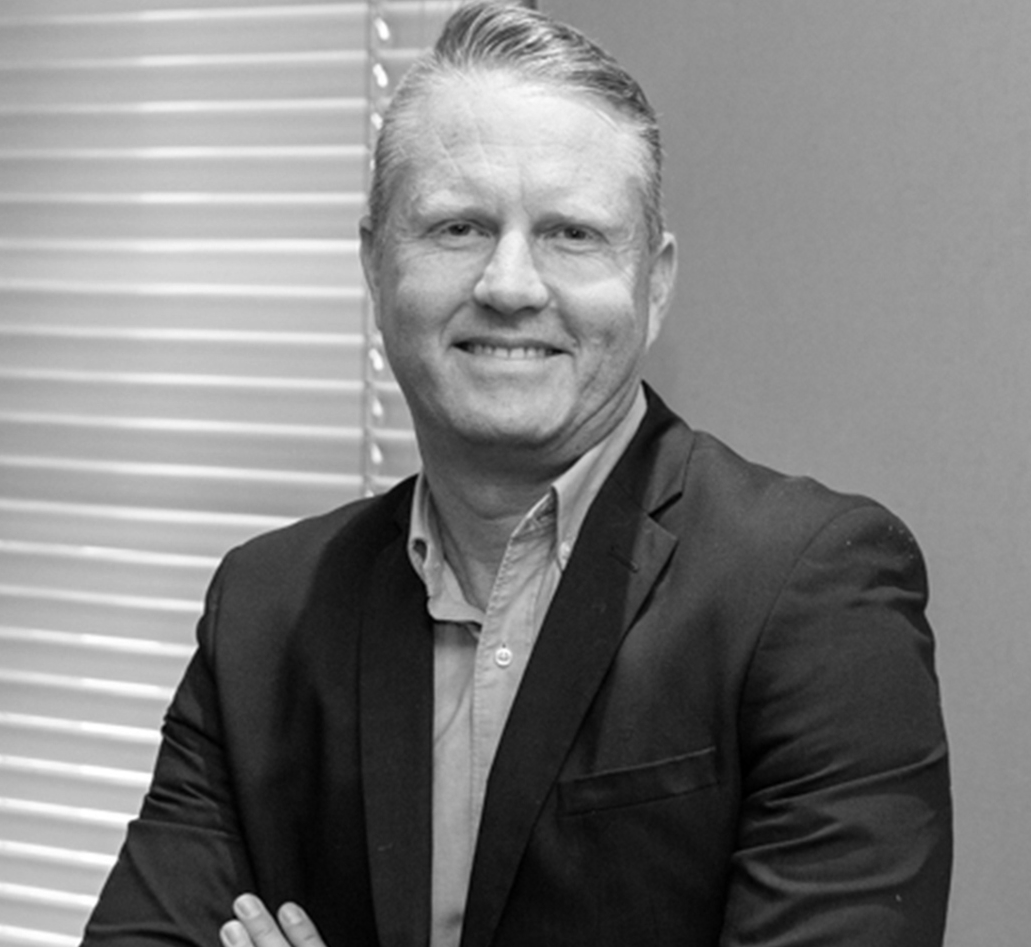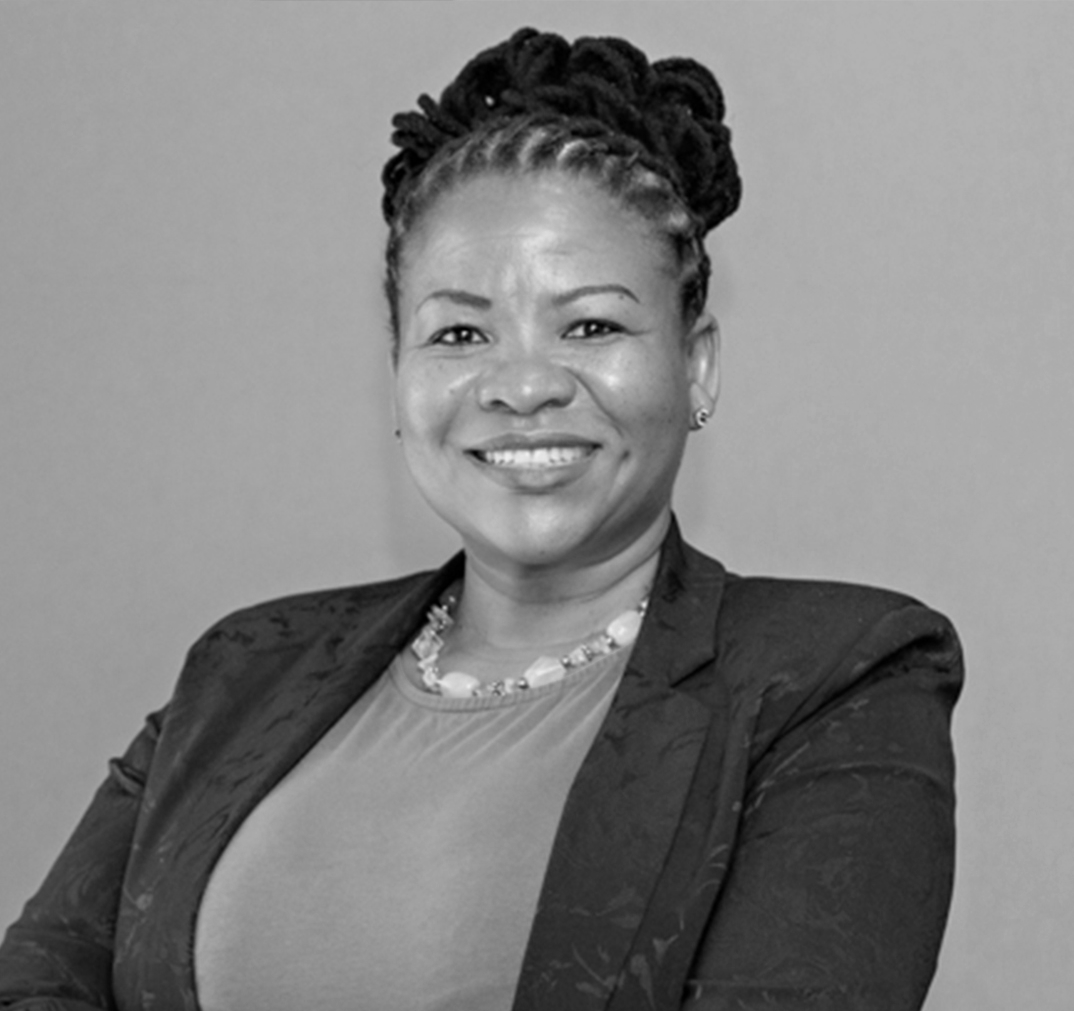10: Fernando Lopez Macari
National President: Mexican Institute of Finance Executives
The global impact of CFO’s: In the first international interview for CFO Talks, Fernando Lopez Macari provides fascinating insight to the Mexican economy.

CIARAN RYAN: This is CFO Talks and today we are very pleased to be joined by Fernando Lopez Macari, national president of the Mexican Institute of Finance Executives or IMEF. Fernando was born and raised in Mérida, Yucatan, which is in Mexico and graduated from Marist University with a degree in public accounting and later studied strategic business administration at Boston University in the United States. He is a certified coach in leadership development and emotional intelligence and has a certificate in investment strategies and portfolio management from the Wharton School at the University of Pennsylvania. He is currently studying the masters programme in international finance at Universidad Panamericana. Fernando is the founder of Grupo Esfera, a professional services company that specialises in management consulting and financial strategy. With a team of more than 30 professionals, Grupo Esfera partners with each client to provide better value, serving different industries in the most influential cities in Mexico. With more than 15 years of experience in corporate finance, he works with boards of directors, executive management teams and other stakeholders to help implement sustainable financial and operational change plans with a focus on value maximisation. He has extensive experience in conducting complex restructurings, bankruptcy proceedings, mergers and acquisitions agreements, capital subscriptions and participation in multi-stakeholder negotiations, reconciling the interests of the parties involved, including the negotiation of restructuring plans, valuation analysis and effective response strategies with multiple accredited groups. So we are delighted to welcome Fernando Lopez Macari, national president of the Mexican Institute of Finance Executives, to CFO Talks, welcome, Fernando.
FERNANDO LOPEZ MACARI: Ciaran, it’s a pleasure to be here talking to you and your audience.
CIARAN RYAN: Fantastic, I am curious to find out about the Mexican Institute of Finance Executives, perhaps you can explain what this is and why you decided to become part of it and, in fact, you’re its national president, so please just explain a little bit about that.
FERNANDO LOPEZ MACARI: The Mexican Institute of Finance Executives is a group of 1200 multi-disciplinary professionals around the country and it’s divided into 20 chapters in the different cities or regions of Mexican territory. It has a lot of influence in economic politics of the government, it has a lot of influence in the decision-making of financial executives around the country and on a monthly basis it publishes a forecast of the economic environment of the country. Every month we publish this document and we also take it to a press conference and our press conference is covered by the major media in the country and this guarantees that whatever we have to say it finds an audience not only in financial executives but also in CFO’s, CEO’s and boards of directors. So it is a multi-disciplinary association of financial executives who work also in technical committees, we have 17 committees like social security, like tax planning, like transparency and anti-corruption policies and so on. So that is how we work and that is how we create value for our associates and the business community in general.
CIARAN RYAN: Okay, so it looks like this body, IMEF, is quite important to the commercial life of Mexico, is that correct?
FERNANDO LOPEZ MACARI: It is, it is important to the commercial life of Mexico and it is also important to the authorities, they are constantly checking back with IMEF to see if the forecast and the predictions that we have in the economics are aligned with what they have. Sometimes if we are in disagreement we will sit down and try to work it out.
Accounting laws and regulations in Mexico
CIARAN RYAN: Maybe just to talk about that for a little bit, can you give us some idea of how you’ve influenced the commercial life in Mexico, for example are you lobbying for a change to some laws, a change in regulations for auditors, for example, to improve standards of auditing and accounting performance in the country.
FERNANDO LOPEZ MACARI: We are lobbying all the time, not only in the federal government but also in the local governments of the communities where we are participate. We created a document that we call 2019-2024 agenda, which contains the proposals that IMEF has for the federal government to amend in terms of loss or create policies that will impact change in the Mexican economic growth, our GDP. We are constantly looking at ways to promote that document, which is current right now, and we sit down with decision-makers, not only in the government but also in the big corporations and small corporations of Mexico to let them know and communicate our vision of the country for 2024.
CIARAN RYAN: Can you tell us a little bit about yourself and your career, it seems that you studied both in Mexico and the United States, and also while doing that tell us about the role of the finance executive and how you think that is changing in the US and Mexico. For example, it seems that finance executives are far more involved in strategic decision-making than was the case in the past. So if you could just kick off and tell us a bit about yourself and how you got to where you are today?
FERNANDO LOPEZ MACARI: I started my career in a small family accounting firm that was founded by my grandfather and it was continued by my father. So my initial background was in accounting, auditing, compliance, tax and basic regular accounting practices. After I finished my career in Mérida I had the opportunity to join courses at Boston University. At Boston University I took a course in strategic planning for management and in that course I learnt the value of putting together the strategic vision of the company, along with the financial strategic plan. When I came back from Boston I decided to create my own firm, so I talked to my family and we came to an agreement and we transformed what was a very recognised firm in what we call right now Esfera, and Esfera in Spanish means sphere, this round concept of like the world is round and everything has to go around. What we created with Esfera was the vision that we had to give more added-value to our clients and they were already satisfied with our accounting work, with our auditing work and all that but we had to go further and that’s exactly what we did. Then I joined IMEF, this is probably 12 years ago, I joined IMEF and then I started to get this vision of how through finance we can add value to the strategic plan of a corporation. For example, if a corporation decides to open new branches and expand around the country, if that’s the commercial vision and that’s the commercial plan then there has to be a financial plan to back up that growth, otherwise cash flow will be compromised. There could also be problems with risk assessment and other circumstances that are not taken into account when you want to grow a company. On the other hand, if you don’t want to grow a company but you want to consolidate business and you want to decide which market, which products, which clients to preserve in your business and where are the most profitable ones, then you also have to analyse the financial background of the operations and historical data and then make decisions upon that. So that’s exactly what I envisioned back then and we created Esfera with the intention to give the CFO’s of the corporations a coach, a partner, an advisor who will help them to gather the data, analyse the data and make a strategic financial plan for them to propose to the board of directors or for them to propose to whatever governance institution they have in their business.
CIARAN RYAN: I think it’s quite interesting that you mentioned that one of the services you’re offering is personal coaching for chief financial officers. I don’t think that’s something that we particularly have seen in this part of the world. What you call a finance executive would that include the CFO or is it something quite different?
FERNANDO LOPEZ MACARI: No that’s exactly the CFO, when we refer to financial executives here in Mexico we’re talking about the CFO’s.
An overview of Mexico’s economy
CIARAN RYAN: Mexico seems a long way from South Africa, where I am based, so maybe you can just spend a minute talking about the main pillars of the economy in Mexico and how the economy there is performing.
FERNANDO LOPEZ MACARI: Mexico is a country that has a lot of natural resources and it has a very young population. This, along with the strategic geographical situation of the country, since we are neighbours with the world’s biggest consumer, which is the United States, and we have a very long border with them that gives us a very good advantage to compete in a worldwide economy. We are one of the countries that has more international trade agreements, free commerce trade agreements in the world. So this has helped Mexico to attract investors from Asia, Europe, America and also Africa to set up their operations in Mexico to provide services or goods to the American economy, which is 24.5% of the worldwide GDP. Along with this the Mexican economy is based on oil, we have one oil corporation, which is Pemex, and it’s the biggest corporation in the country, and it’s owned by the government, it’s owned by the Mexican people. At this point Pemex is going through a change in its organisational plans and it’s opening to have more joint venture agreements with international corporations for them to come and explore the oil and gas in Mexican territory. So a big portion of our economy is based on services and goods that we produce for the American market. Going back to the American market, we are big on plasma TV’s and we are big on the production of TV’s in general and we are also big on transportation and car fabrication and auto parts. Then we have the other arm of our economy, which is the petroleum, the oil and gas industry and in recent years Mexican oil production has been going down but there are strategies that were taken by the government lately to increase production of the oil and gas, so we’re hoping to have better years in that matter. That is an outlook of the Mexican economy, our annual GDP is around 2% and we have inflation of 4% annually, and we have a very solid bank system with a central bank that is independent and it takes decisions only in maintaining the value of the Mexican currency. So that’s pretty much an outlook of what I would call the Mexican economy.
CIARAN RYAN: Let’s turn back to the Mexican Institute of Finance Executives, what is your role in this organisation as its national leader and what is it that the organisation is trying to achieve?
FERNANDO LOPEZ MACARI: My role as president, I am the president of the board of directors, it’s work that consumes most of my time. Even though I don’t live in Mexico City it requires me to be here in Mexico City basically the entire week. My role is to guide the organisation through relationships with financial executives, corporations, governments, my role is to represent, I am the only legal representative of the institution and I am the only one allowed to declare or give positions or to give the media an opinion related to how the financial executives in Mexico think or how we see things. So I am like the representative of the financial community in Mexico. We have a board of directors and we have monthly meetings, and we also have to attend a number of technical events like our energy forum, our business summit or our technological symposium. So we have these events around the country and I have to co-ordinate all the efforts of the 20 chapters around the country and trying to support the 1200 associates that we have because we do not associate corporations, we associate individuals.
CIARAN RYAN: On another point, do you think there’s a need for a global CFO designation, this is something quite new in the world, particularly in the world of finance executives, and if you do believe that, why?
FERNANDO LOPEZ MACARI: What do you mean global CFO designation?
CIARAN RYAN: There is a move that has been started here in South Africa to launch what is called the CFO, for example, CFO (South Africa) designation or the CFO (Mexico) designation, as you would have a similar designation with, let’s say, chartered accountants or CPA’s in the United States. Do you have any opinion on that, is there a need for such a thing?
FERNANDO LOPEZ MACARI: I think every day now we are facing a more global economy and whatever happens in South Africa may have an impact in the Mexican economy now. But in the past, 20 years ago, we wouldn’t believe that something that happened in South Africa could have an impact in the Mexican economy because South Africa and Mexico are in the same bracket of emerging markets and for big portfolio managers they are in the same investment portfolio. That’s the same with Russia, Turkey and some other countries. So what I think is that every day a CFO has to be aware of what is happening in the world economy and how is the world economy developing. Mostly emerging markets because emerging markets are right now the drivers of global GDP, they are the ones that change the tendency between a recession or an expansion economy. By saying this I do feel and I do support that there are movements that are looking for a global CFO certification or accreditation or whatever. I do think that every day the CFO’s need to be much more involved in the global impact of the economy.
Corruption and scandal has no borders
CIARAN RYAN: Now, in South Africa we’re reading quite a lot in the press about some major corporate scandals that seem to involve high-level accountants and there’s also a lot of talk and some action in cleaning up the profession through tougher disclosure rules and regulations and that sort of thing. Give us an idea is corruption a problem in Mexico and how is this being addressed?
FERNANDO LOPEZ MACARI: Corruption is a problem in Mexico, yes. IMEF have issued several papers regarding how to give more transparency into the government, into the corporations. Where we have [20:41] in terms of research and analysis… I think corruption is much more of a problem in that not only is it affecting the Mexican economy but also the worldwide economy because every time we see more and more of these white-collar crimes or financial crimes or lack of financial ethics, we have to go back to the 2008/2009 worldwide crisis and that’s a crisis that started based on financial lack of ethics. So I do feel that to eliminate corruption and to create a better environment for financial executives we do need to regulate how they make their decisions and how they analyse and what products and services they are putting into the market.
CIARAN RYAN: One of the points that you touched on a little bit earlier, and just talking about corruption and the role of accountants and you mentioned ethics, how can finance executives and CFO’s become more involved in rooting out corruption? Is it a matter of regulation or is it a matter of just raising the standard expected from CFO’s and finance executives?
FERNANDO LOPEZ MACARI: I think it’s a combination of both. I think we all have to raise the standard and we have to get more involved, as the Mexican Institute of Finance Executives we have to be more involved in how we form financial executives, what the academy is doing, what the corporations are doing, we have to be communicating the value of a sustainable financial strategy. This will give the board of directors and the businessmen an idea of the value a CFO can add to the management team of a corporation because sometimes we feel that CFO’s are constantly stressed by results because all corporations want to have is results and results and results and there’s a lot of stress in that. We believe that by creating financial strategies that will not only create results but sustain these results, in the long term that could be a better way to create a more ethical environment and fight against corruption.
CIARAN RYAN: We’re running out of time here but I have one other question for you, any books that you would recommend, books that have impressed you or that you feel have captured the spirit of the age? Also just tell us a little bit about what you do for leisure in Mexico.
FERNANDO LOPEZ MACARI: For leisure I like to fish and dive, I am a big fan of the ocean and ocean life. So I have a boat and I fish and dive for leisure in Mexico.
CIARAN RYAN: So you’re obviously living on the coast somewhere?
FERNANDO LOPEZ MACARI: Yes, I live in Mérida, it’s a city that’s based 30 kilometres from the coast, so it’s a short drive to the beach. So that’s what I do for leisure. In terms of reading I have read a couple of books lately that really changed my way of seeing things and influenced my thoughts, one is Everybody Lies by Seth Stephens-Davidowitz.
CIARAN RYAN: Why do you like that book?
FERNANDO LOPEZ MACARI: It’s a book that talks about big data, new data and how the internet is affecting the decision-making of people and the consumers’ habits. It also tells us how we really are, it tells us what people have in their mind, what they’re thinking because right now, think about it, if you don’t know the answer to one question or if you’re looking into new data or if you want to learn about something you go to Google or the internet. All these searches of data that people do are recorded and they can be obtained and they can be used to make decisions in terms of finance or commercial strategies or elections or whatever. So that’s one book that really impressed me lately. The other one is about exponential organisations and the book is called Exponential Organisations by Salim Ismail and it talks about the new organisations and how these new organisations like Facebook, Airbnb and Uber are ten times better, are faster and they are cheaper and much more efficient than older organisations. These organisations are building the web in the cloud, they have very few employees and that’s why they are selling 22 or 26 times their EBITDA value. They are really changing the way of doing business in the world and how the consumer is changing their habits. So those are two books, I am 41 years old, so I am part of this computer generation but I am not fully a millennial, so we have to keep track of these changes and implement them in our day-to-day life.
CIARAN RYAN: Okay, so those two books, Everybody Lies by Seth Stephens-Davidowitz and Exponential Organisations by Salim Ismail, those are definitely two books that I am going to look out for. But we’re going to have to leave it there, Fernando, for the moment. It’s been fascinating talking to you and getting a viewpoint from Mexico and the Americas about the state of the economy and the state of the finance executive world. Thank you very much for your time and we wish you the best of luck.
FERNANDO LOPEZ MACARI: Thank you, it’s also been a pleasure for me and I’ll be glad to do this again whenever you guys feel it’s good for your audience.
CIARAN RYAN: Absolutely, we will check in with you every now and again to see how things are going.

